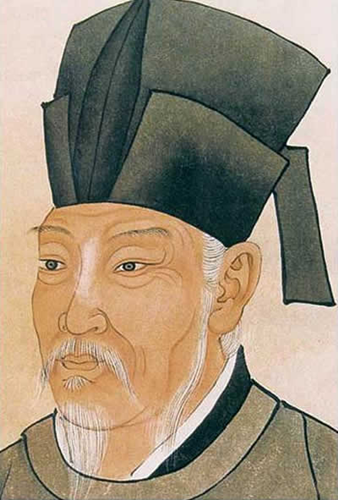Bai Juyi
Bai Juyi (772-846) was a Tang Dynasty (618-907) poet with the courtesy name of Letian. His ancestral hometown is Taiyuan. His great grandfather moved the family to Xiagui (in the north of today's Weinan in Shaanxi province), where it was referred to as Baigong from Taiyuan. Bai Juyi succeeded in the Jinshi — or the imperial examinations — in 800. After that he took several civil official posts, such as a member of the Hanlin (the Imperial Academy) and Reminder of the Left. In 815, when prime minister Wu Yuanheng was assassinated, he insisted of strenuous efforts to arrest the murderers, which made him enemies at court and in certain other positions. In consequence he was demoted to Jiangzhou — today's Jiujiang in Jiangxi province. In 819, during the reign of Emperor Muzong, Bai Juyi was recalled to the capital city, Chang'an, and given the position of second-class Assistant Secretary. Witnessing the political corruption and struggles between partisans, Bai asked to leave Chang'an to take positions in Hangzhou and Suzhou. During the reign of Emperor Wenzong, he was named the Master of the Crowned Prince. In his later years, he retired and retreated to Xiangshan in Luoyang and was then called the "Hermit of Xianshang". There he devoted himself to poetry and Buddhism. Considered one of the greatest Chinese poets, the style of his poetry was simple and easy to understand. He emphasized the didactic function of literature, believing that every literary work should contain a fitting moral and a well-defined social purpose. His poems reflect his sympathy for the people and his dissatisfaction with corrupted politics. His famous poems include Song of Everlasting Sorrow and Song of the Pipa Player, both included in the Bai's Changqing Collections.




